Wednesday, January 25, 2012
Knowing what you’re eating is an important first step to initiating dietary change. Do some detective work on yourself to learn more about what and how you eat to inform where you need to put your efforts.
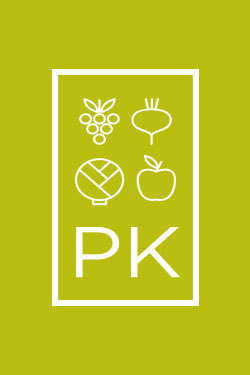 Do you really know what you’re eating? You sure about that?
Do you really know what you’re eating? You sure about that?
I feel rather Freudian, given my first strategy for healthy eating and weight loss begins with self (dietary) analysis. But let’s start from the top (or the bottom, depending on how you look at it): Assess Your Diet. Today’s tip may sound boring, but it’s a fundamental part of creating lasting dietary change. Think of it as a dietary GPS, which begins with programming where you are as the first critical step before you map out where you are going. The simple fact is that however you are looking to alter your diet, it makes sense to first understand fully what and how you are actually eating. Then, you can see where you need to direct your efforts to make the dietary adjustments needed to enjoy better health and a healthier weight.
It’s Elementary, My Dear Readers
If you don’t get excited about analyzing your own behavior or measuring things, like some of us, then picture yourself as Sherlock Holmes, trying to investigate what’s going wrong in your diet in the quest to solve the mystery of why you are overweight (or insert here any other health issue you are having that may be diet related). It’s like writing your very own dietary detective story. Sure, it’s only moderately interesting, but you’re still the star.
I’m using the analogy of a mystery here because, like many of the choices we make in our lives, we don’t always have a handle on what exactly we are doing, let alone why. This can also be true about what and how we eat, which is why assessing our diet is so critical. Indeed, if you’ve ever met with a nutrition professional to examine your diet, one of the first things you do is record what you’re eating. This information can then be used to identify the strengths and weaknesses of your diet and your food preferences, which will better inform a potential treatment plan that is most suitable for your dietary tastes and styles. While I can’t provide individually tailored advice in this forum, I promise you will find this exercise useful and informative, and possibly even fun.
So. Measure my diet? How do I do that, you query? Good question, thanks for asking. Keep reading.
The Goal of Dietary Self-Analysis: Gain Insight Into Your Usual Diet
Measuring what people are eating is something I do professionally, mostly for use in research studies of diet and obesity or other diet-related diseases. As noted above, assessing diet also occurs in individual settings where people are interested in learning more about their diet in order to change it. There are a number of ways diet can be measured, which are both beyond the scope of this blog and most certainly beyond your interest level (and, on occasion, mine). Thus, we’re going to choose the most accurate method for this setting – the dietary record – and go from there.
The dietary record—aka, “diet diary” or “food diary”, especially in the UK—is a place where you record everything you are eating over a set of days that, together, represent your usual diet. This leaves us with two fundamental concepts to define before going forward. First, I do mean everything. Food, drink, condiment, water, salt and pepper—all of it gets reported. Second, the focus is on usual diet, which means what you think it does. In other words, what you ate during a week of vacation, while informative, is not often indicative of “usual” diet. (Unless you are always on vacation, I suppose.) The analytical among us next ask: how many days constitute “usual diet”? Another great question, and in brief it depends. In highly detailed calibration studies, individuals have measured their diet for an entire year (ugh!), or a month (one week per season). If you find this activity super fun (yes, I’m serious!), you are free to report as many days as you wish, but two weekdays and one weekend day is usually adequately informative. A complete week would be even better. Knock yourself out.

First Things First: What, When, and How Much Are You Eating?
A diet record measures several key elements about your eating behavior: what (you are eating), when (time), and how much (quantity). Sound easy? It’s harder than you think, especially if you don’t cook yourself, in which case you need to estimate as best you can. How far you take it, in terms of accuracy, detail, and quantification, is up to you. Of course, I encourage precision as much as possible, but do what you need to do to make it happen. The bottom line for accurate dietary recording is to remember the two Ds: deconstruct and detail.
![]() For example, you can start by writing “turkey sandwich,” but you will then record each element separately: type and brand of bread, amount and brand of condiment (if any), use of salt and pepper, amount and type of anything else on the sandwich (lettuce, tomato, whatnot). And what of the turkey? Deli meat, turkey breast, sodium content, etc? Get it? Things can get even more complicated when you make a casserole at home, which has lots of ingredients. Listen, we can only get so crazy in this setting, as people who do this are usually trained, not to mention given scales to weigh their food. I’ll close this post with some online tools available to help you, but in the meantime don’t get overwhelmed. Just do the best that you can, knowing that the more effort you put into it, the more informative it will be; any amount of information gained will be more than you had, right?
For example, you can start by writing “turkey sandwich,” but you will then record each element separately: type and brand of bread, amount and brand of condiment (if any), use of salt and pepper, amount and type of anything else on the sandwich (lettuce, tomato, whatnot). And what of the turkey? Deli meat, turkey breast, sodium content, etc? Get it? Things can get even more complicated when you make a casserole at home, which has lots of ingredients. Listen, we can only get so crazy in this setting, as people who do this are usually trained, not to mention given scales to weigh their food. I’ll close this post with some online tools available to help you, but in the meantime don’t get overwhelmed. Just do the best that you can, knowing that the more effort you put into it, the more informative it will be; any amount of information gained will be more than you had, right?
In an ideal world, you would record foods as you are consuming them, which avoids the bias that can be introduced later either when you forgot what you ate and/or how much of it. Yes, people doing this for real actually sit there with their pencil and paper, laptop, or app as they’re eating. Sound nerdy and annoying? That’s why these people have no friends and are eating alone. Kidding! (For the most part.) Depends on your personality, I suppose, but when people are asked to do this in a research setting we sometimes provide pecuniary incentives. For you, my friends, knowledge must be its own reward.
And I do promise you that knowledge will be gained. You see, I’ve done this activity with hundreds of students, not to mention research subjects, and I receive very positive feedback. This is because the act of recording what you eat, at whatever level you choose to do so, often leads to changes simply because you observed your own behavior. (This phenomenon is a variant of the Hawthorne Effect, in case you were wondering.)
More Data: Recording the Who, Where, and How is Even Better
There are many ways to measure different aspects of diet. The original diet record method focuses on the basics of what, when, and how much, discussed above. But adding some extra information will provide an even richer picture of your food behavior, if you’re so inclined. The “where” is especially important, given so much eating occurs out of the home whether in restaurants, cafeterias, or fast food establishments (a topic I’ll cover next week). The “how” in some ways is related to the “what” so take it in whatever vein you’d like, but the key is to note how the food is prepared. A grilled chicken breast is not the same as fried chicken drumsticks or barbecued chicken, for example; often times it’s the “how” foods are prepared that brings in the extra calories, fat, and sodium that we don’t need.
Finally, while of course you are the most important who in this story—go you!—recording your dining company may well be informative. Friends, spouses, and coworkers can exert powerful influences on our eating behavior, and gaining an understanding of whether these people are supportive characters in your story or partners in crime could be helpful.
(Think: “You know you want that third piece of cake, don’t you? Don’t you? DON’T YOU?” versus “Put down the spoon and step away from the buttercream. Slowly, now …”* )
A Quick Reminder: This Story is Non-fiction
 Why of course it’s not fiction, you exclaim! I will record everything truthfully to the best of my knowledge, as accurately as I am able. Wonderful! You get an A! Given I will not be reviewing your records, the veracity of your data will hopefully not be in question. I need not share with you the many, many times I’ve received fabricated dietary accounts, which are of no use whatsoever to anyone.
Why of course it’s not fiction, you exclaim! I will record everything truthfully to the best of my knowledge, as accurately as I am able. Wonderful! You get an A! Given I will not be reviewing your records, the veracity of your data will hopefully not be in question. I need not share with you the many, many times I’ve received fabricated dietary accounts, which are of no use whatsoever to anyone.
Do be kind to yourself, however. Cake happens! One of my favorite stories about reviewing records (for completeness) in one research study was reading a post-it from one woman, who wrote something to the effect of “I know I shouldn’t have eaten that piece of cake :(, but it was my daughter’s birthday!” The goal of this activity is to document your dietary behavior to illuminate potential areas of change, not to make you feel guilty. Relax. I like my goodies too, you know.
Of Note: Online Help is Available
If you don’t want to use your own spreadsheet (with columns for each dietary variable of interest as discussed above), there are a number of online tools to assist you. The USDA’s ChooseMyPlate site has a page that allows you to enter your information into a dietary database. This free system will also analyze the data you’ve entered to demonstrate how your diet compares to the Dietary Guidelines for Americans. (Caveat: The USDA is not the be all and end all of dietary advice, as I’ve noted before, but it’s a fine starting place and their system will help you with some of the complexities of entering dietary data, including brands and quantities. It also has a physical activity tracker.) There are many other systems out there online that you can find rather easily by googling “calorie counter,” “food diary,” or some such—not to mention apps for your mobile phone.
Whatever you do, however you do it, research has shown that just doing it often leads to positive results. So give it a shot, and let me know how it goes.
—
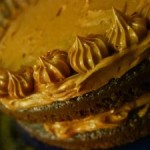 * It was, in fact, my husband’s birthday last week, and I made a very traditional chocolate birthday chocolate with so-called outrageous mocha buttercream from Zoe Bakes. Aptly named, there are simply no words … other than to say I do not recommend making this buttercream when you are alone in the house.
* It was, in fact, my husband’s birthday last week, and I made a very traditional chocolate birthday chocolate with so-called outrageous mocha buttercream from Zoe Bakes. Aptly named, there are simply no words … other than to say I do not recommend making this buttercream when you are alone in the house.
—
Learn more about food personality and health expert Dr. PK Newby here, or her experience as a nutrition scientist, professor, and consultant here. Or click here if you just want to ogle food porn featuring plant-based, globally inspired cooking.

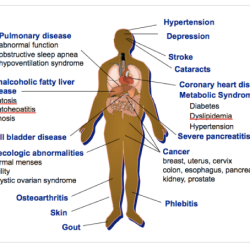
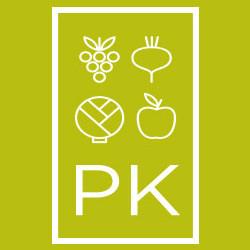
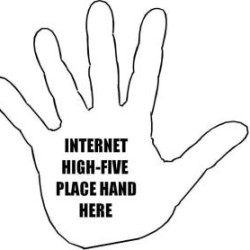
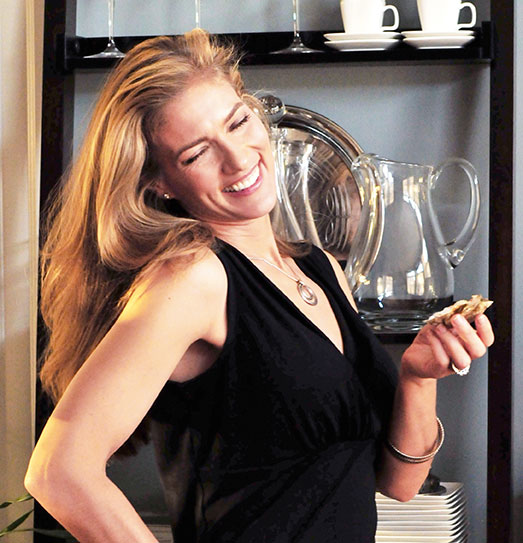
It was a delicious cake, I know because we were able to enjoy some of it, thanks so much for sharing with us.
Glad you enjoyed it & thanks for the comment!